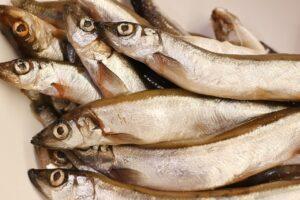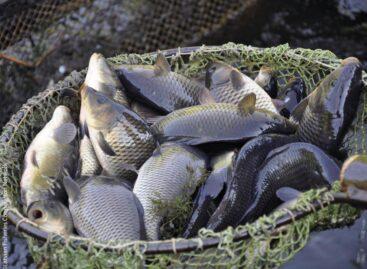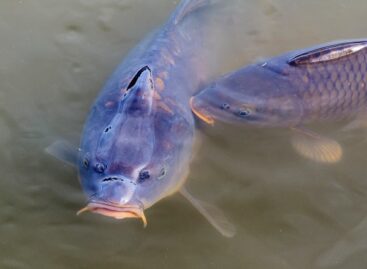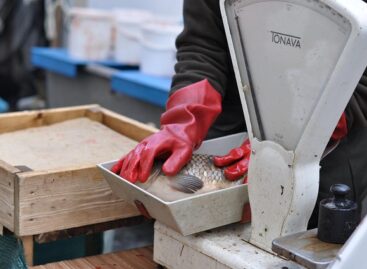Hungarian lake fish production is in danger: lack of subsidies and climate challenges make it difficult for the sector to survive
Although the traditions of Hungarian fish production are old, today’s challenges are increasingly undermining the future of the sector. The lack of subsidies, the problems arising from climate change, the decreasing demand and the competitive disadvantage vis-à-vis neighboring countries all contribute to the fact that the importance and potential of domestic fish production is constantly shrinking. According to Ferenc Lévai, the spokesperson of the Hungarian Aquaculture and Fisheries Association (MA-HAL), with the “retirement” of the current producers, further degradation of the lake farms can be expected – reports the Agricultural Sector.
 This year has been particularly difficult for fish farmers. Although the lakes in Transdanubia were filled with precipitation, the cold spring prevented the reproduction of plankton, which is a basic food source for fish. From June, the lakes were hit by a heat wave, which by August caused a water loss of 2.5–3 cm per day through evaporation. The high temperature accelerated the metabolism of the fish, but the rapid digestion did not result in adequate weight gain, which caused economic loss. Due to the lack of oxygen, forced fishing has become necessary in some lakes.
This year has been particularly difficult for fish farmers. Although the lakes in Transdanubia were filled with precipitation, the cold spring prevented the reproduction of plankton, which is a basic food source for fish. From June, the lakes were hit by a heat wave, which by August caused a water loss of 2.5–3 cm per day through evaporation. The high temperature accelerated the metabolism of the fish, but the rapid digestion did not result in adequate weight gain, which caused economic loss. Due to the lack of oxygen, forced fishing has become necessary in some lakes.
The situation has also been aggravated by the increasing number of protected fish-eating birds such as cormorants, which have turned to the fishponds for food due to the lack of water. Because these birds are protected, fish farms can only control them to a limited extent, so they serve as a “table setting” for wildlife.
Another problem is the low level of EU subsidies. Hungary only receives 100 euros per hectare to support fish production, while neighboring countries such as Croatia or Germany receive 300-700 euros per hectare. According to Lévai, Hungary would need HUF 15 billion in support over seven years in order for the sector’s competitiveness to catch up, which would mean an annual surplus of only HUF 2 billion.
Domestic fish producers agree that it will be difficult to stay competitive without modern technological developments. Innovations such as intelligent feeding systems and water quality control devices would greatly increase efficiency, but few can afford these investments given the current low profitability.
Visszajelzés küldése
Oldalsó panelek
Előzmények
Mentve
Related news
Double price, changing demand: the domestic carp market is on a new path
🎧 Hallgasd a cikket: Lejátszás Szünet Folytatás Leállítás Nyelv: Auto…
Read more >Related news
The Hungarian Food Book is 50 years old
🎧 Hallgasd a cikket: Lejátszás Szünet Folytatás Leállítás Nyelv: Auto…
Read more >NKFH: inspections focus on discount prices and customer deception
🎧 Hallgasd a cikket: Lejátszás Szünet Folytatás Leállítás Nyelv: Auto…
Read more >








